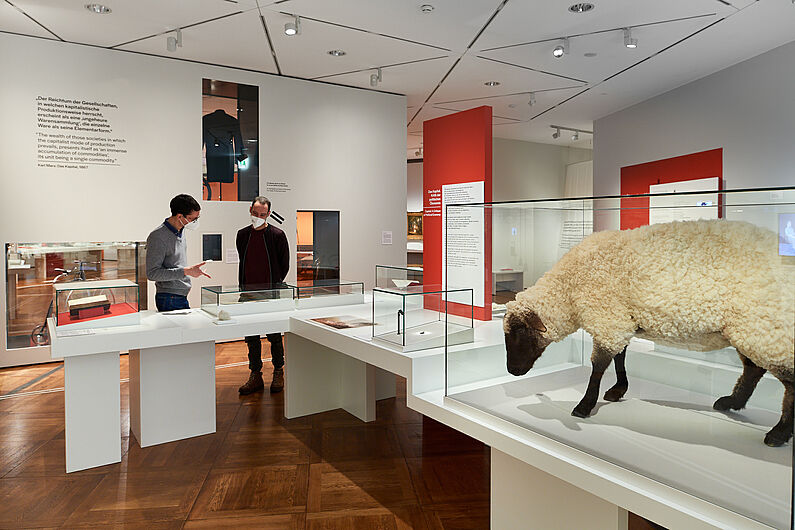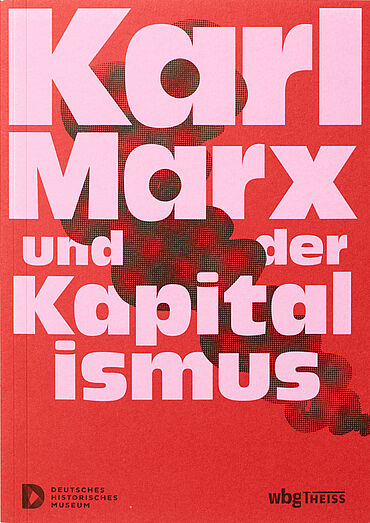
Karl Marx and Capitalism
Industrialization catalyzed enormous economic, social, and cultural upheavals in the 19th century. Karl Marx was among the most important critics of the volatility of “modernity” and capitalism. As a philosopher, journalist, economist, and political activist, he aimed to make the new dynamics comprehensible and malleable. Marx advanced to one of the most influential German personalities of the 19th century – with a controversial body of work still read across the world to this day.
The exhibition “Karl Marx and Capitalism” presents and problematizes that work and influence of Marx as a confrontation with a dynamically changing capitalism and the controversies of the 19th century. Themes that take center stage include the critique of religion and society, the emancipation of the Jews and antisemitism, revolutions, new technologies, nature and ecology, economy, as well as struggles and movements in Europe – themes that have lost none of their explosiveness, either. The exhibition thus connects the historicization of Marx to questions of his currency, while also taking a critical look at the reception of his theories in the 20th and 21st century.
Accompanying Programme
The event series “Marx, Wagner and ...!” ran parallel to the two exhibitions “Karl Marx and Capitalism” and “Richard Wagner and the Nationalization of Feeling” and showed interconnections between them. The exclamation mark in the title of the series stands for the respective third person whose impact is examined in the light of the works of Marx and Wagner: Victoria, Princess Royal and German Empress, Mahatma Gandhi and Friedrich Nietzsche, seen in connection with Marx and Wagner, were each the topic on one of the three evenings. The event series took place in May and June 2022.
Publications
-
![Cover des Ausstellungskatalogs.]()
Publication
Karl Marx and Capitalism (in German)
-
![[Translate to English:] Cover of the 3rd “Historische Urteilskraft” magazine.]()
Publication
Historical Judgement 03. Magazine of the Deutsches Historisches Museums
The cover story of the third issue focuses on Karl Marx and Richard Wagner together. Based on the three discourses "anti-Semitism", "alienation" and "revolution", it examines the extent to which the ideologies of these two "German thinkers" can be related to each other - and the extent to which they are specifically German reactions to modernity and capitalism.














![[Translate to English:] Cover of the 3rd “Historische Urteilskraft” magazine.](/assets/_processed_/e/1/csm_DHM_HU_3-2020_Magazin_U1_d4b31cc2da.jpg)






